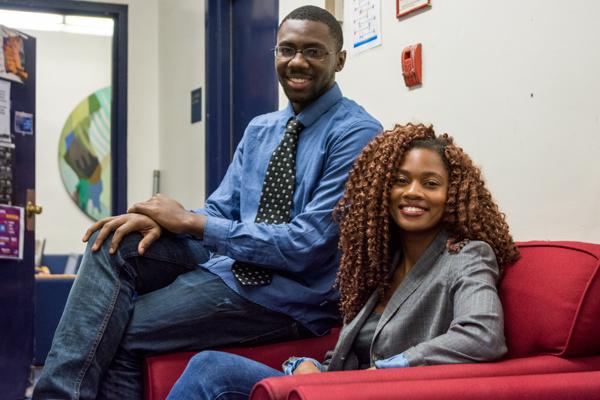Members of the Black Student Union said they will focus on their members’ and other multicultural students’ mental health throughout this school year.
BSU hosted their first-ever panel on the importance of mental health in the black community last week, and members say they plan to continue outreach through more panels and other conversations on mental and emotional well-being.
Abeke Teyibo, the president of BSU, said students should discuss how to maintain their mental health and learn about resources that can help them.
The idea for last week’s panel came after the group hosted a vigil in Kogan Plaza last month to remember the lives of unarmed black men and women who have been killed by police officers, she said.
“Everyday when you are experiencing people that are dying, that are people of color like you are, it affects you,” Teyibo said.
Last week’s panel discussed how students can use the Multicultural Student Services Center if they need to talk or if they face discrimination or feel uncomfortable, Teyibo said.
“There are resources there to help you in those type of situations,” Teyibo said. “Recently there was a student who contacted us and said that there was a professor that did use a racial slur towards them. It is important that students know that they have an option instead of having to deal with stuff like that on their own.”
She added that she plans to host more events and panels over the course of the year, especially during midterms and finals.
People in the black community sometimes don’t consider their mental health, but students should bring awareness to the importance of mental well-being, Teyibo said.
“There needs to be more awareness, letting people know that it does happen in our community,” Teyibo said. “It is not taken as seriously as it should be.”
Tai’Lon Jackson, the membership chair of BSU, said the group will advertise the next event more broadly to increase awareness and attendance. Eighteen people attended the first panel.
Last week’s panel touched on subjects like facing discrimination in the classroom and handling hurtful language, Jackson said.
“Also how to approach people when the do say something or do something that can be misunderstood because everyone is learning about everyone else, so you don’t know much about them and they don’t know much about you,” Jackson said. “It is important for both parties to understand each other.”
The overall message of the event was that people of color already deal with obstacles to overcome but still need to pay attention to their mental health, Jackson said. Everyone goes through similar emotional struggles, no matter their race, he added.
“We are no more or no less human than any other person,” Jackson said. “Everyone is emotionally sensitive and needs to be able to vent their frustrations and understand how to take care of themselves.”
Mental Health Services has been expanding their outreach to the school’s multicultural community by adding a diversity services coordinator, who spoke at last week’s event.
Zoeann Finzi-Smith, a staff clinician and the diversity services coordinator, said the event was “timely and important” in addressing multicultural students’ struggles and concerns.
“The depth and intentionality of the questions proposed highlighted the importance of this topic to diverse groups at GW and the need for future conversations,” Finzi-Smith said.
MHS is continuing to develop relationships with offices, departments, student organizations, faculty, staff and students who are committed to GW’s diversity, she added.
Finzi-Smith said that she has started various programs to meet the unique needs of multicultural students, including walk-in hours, weekly programming at the MSSC and tailored psychotherapy groups for members of the LGBT community and women of color.
“We are excited that our strong relationship with MSSC has helped bridge our relationships with diverse students and organizations on campus and continues to connect us to other ways we can support the GW student body,” Finzi-Smith said.







